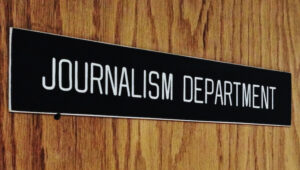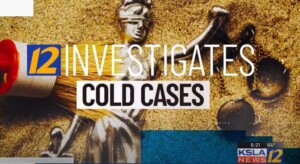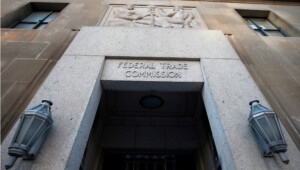McDowell Offers Hope On Political Ad Files

FCC Commissioner Robert McDowell says that rather than adopting Chairman Genachowski’s plan, he would prefer that stations “aggregate” the spending of individual candidates and PACs and report that on a weekly or daily basis rather than requiring them to put the rates of all political buys on the Web. And colleague Mignon Clyburn says she’s open to persuasion on the matter. For all that’s going on at NAB 2012, click here.
The FCC has filed a petition seeking a Supreme Court review of its loss in the Third Circuit in its Janet Jackson Super Bowl wardrobe malfunction case against CBS.
Titanic’s Fate Sealed That Of Broadcasting
 Prior to the tragedy 100 years ago, wireless communications in the U.S was close to anarchy. There wasn’t much public sentiment for regulating a technology that few fully understood or that was as intangible as the “airwaves.” But the upshot of the disaster was a universal call for government regulation of wireless in the progressive spirit of the day. Wireless was clearly too important now to be left solely to the vicissitudes of free enterprise. The regulation carried over to broadcasting a decade later. So when you’re filling out renewal forms or pondering the fate of your spectrum, you can blame that damn iceburg.
Prior to the tragedy 100 years ago, wireless communications in the U.S was close to anarchy. There wasn’t much public sentiment for regulating a technology that few fully understood or that was as intangible as the “airwaves.” But the upshot of the disaster was a universal call for government regulation of wireless in the progressive spirit of the day. Wireless was clearly too important now to be left solely to the vicissitudes of free enterprise. The regulation carried over to broadcasting a decade later. So when you’re filling out renewal forms or pondering the fate of your spectrum, you can blame that damn iceburg.
Political Ad Court Decision Raises Questions
Yesterday’s federal appeals court dicision that hat the long-standing prohibition on the carriage of paid political and issue advertising by noncommercial TV and radio stations is unconstitutional and may no longer be enforced by the FCC leaves open many important questions as to how to implement it.
In a letter to the FCC, the station group’s general counsel, Barry Faber, answers claims made in an earlier statement by Mediacom CEO Rocco Commisso.
Details of the specific edict won’t be released until April 27 during the FCC’s monthly meeting, but the order is expected to start with network affiliates in the top 50 markets this year; most other stations will not have to send their political files to the FCC for two years.
 At its April 27 meeting, the FCC is expected to adopt new rules requiring TV stations to post their public inspection files on an FCC-hosted website, according to several agency insiders. And the commission is likely to insist that a station’s political files — records of political advertising bought by candidates and advocacy groups — be electronically converted and uploaded as well.
At its April 27 meeting, the FCC is expected to adopt new rules requiring TV stations to post their public inspection files on an FCC-hosted website, according to several agency insiders. And the commission is likely to insist that a station’s political files — records of political advertising bought by candidates and advocacy groups — be electronically converted and uploaded as well.
.
FCC Readies ‘Complicated Spectrum Auction’
Congress granted FCC Chairman Julius Genachowski’s wish for the power to hold an airwaves auction that will pay broadcasters to abandon some of their frequencies, but turning that wish into reality is going to be a challenge. The agency is trying to figure out how to design and conduct the complex auctions, which for the first time will pay people to give up valuable airwaves.
DirecTV Takes Tribune Retrans Fight To FCC
DirecTV filed a complaint with the FCC on Monday accusing Tribune Co. of negotiating a new programming contract in “bad faith” and questioning who is making decisions at the company.
FCC Wants Copies Of Entire Public Files
 In a move presumably connected with the FCC’s proceeding to require TV stations to place their public inspection files online, FCC inspectors have appeared at stations in several markets and demanded that the stations provide them with a complete copy of their entire public inspection files within 48 hours or less. Given that most public files are measured in yards, not feet, of paper, there are a lot of broadcast employees burning the midnight oil trying to comply.
In a move presumably connected with the FCC’s proceeding to require TV stations to place their public inspection files online, FCC inspectors have appeared at stations in several markets and demanded that the stations provide them with a complete copy of their entire public inspection files within 48 hours or less. Given that most public files are measured in yards, not feet, of paper, there are a lot of broadcast employees burning the midnight oil trying to comply.
April Fools Gags on Air? Play It Safe
With April Fool’s Day only a few days away, we need to repeat our annual reminder that broadcasters need to be careful with any on-air pranks, jokes or other jokes prepared especially for the day. While a little fun is OK, remember that the FCC does have a rule against on-air hoaxes — and, of any day in the year, April 1 is the day that the broadcaster is most at risk.
New EAS Rules Kick In On April 23
In January the FCC released its Fifth Report and Order (5th R&O) in its long-running proceeding aimed at modernizing the Emergency Alert System. The 5th R&O has now been published in the Federal Register, which establishes the effective date for the new rules: April 23. If you and your engineering staff haven’t focused on whether your current facilities conform to the standards set out in the 5th R&O, the countdown has now started.
Ruth Milkman, an aide to FCC Chairman Julius genachowski, is tapped to oversee six others on the new Incentive Auction Task Force.
Retrans Without A Deal Is Expensive Mistake
While cable operators certainly may not like paying retransmission fees for broadcast programming, a pair of FCC decisions make clear that the price of not having a retransmission agreement in place can be far higher.
OMB Sets Tower Registration Comment Deadline
FCC Begins Open Season On TV Renewals
The FCC on Monday issued a Public Notice officially launching the television station license renewal cycle. The notice, however, also contains an unusual new request. Specifically, the FCC asks that TV station licensees or their counsel log into their accounts in the FCC’s Consolidated Database System and update the licensee’s and its counsel’s contact information using the account maintenance function.
The thinning of the ranks of Class A TV stations continues. Recently, the FCC has started to propose the downgrading of a number of Class A television stations to LPTV status, presumably to make room for the almighty broadband to take over TV spectrum. Another 16 Class A’s now face the prospect of being demoted to LPTV status.
Reprieve And Lesson For Class A Stations?
I wrote in February about a sudden deluge of nearly identical FCC decisions, all released on the same day, proposing to revoke the Class A status of 16 LPTV stations for failure to timely file all of their Form 398 children’s television reports. I was at least somewhat relieved to see a trio of decisions released Wednesday morning by the FCC that are largely identical to the February decisions with one big exception — the FCC proposed fining the stations for failing to file all of their children’s television reports rather than seeking to revoke their Class A status.
The trade group says in comments that the commission’s media ownership regulations are outdated and don’t reflect market realities. It argues that they place broadcasters at a “severe disadvantage” in a marketplace filled with rival media that do not labor under similar restrictions.
Texas Court Decision Moves LUC Dates
A federal court in San Antonio has rescheduled the state’s primary elections, moving them back nearly two months, from April 3 to May 29, with runoff elections, if necessary, on July 31. Under the FCC’s political broadcasting rules, candidates for federal office are entitled to lowest-unit-charge (LUC) rates during a window of 45 days before a primary or primary runoff. So Texas broadcasters who might have thought that their LUC period had already been set have another think coming.
King’s Take On Political Files Goes Astray
Washington communications attorney Jack Goodman: In her commentary arguing for broadcasters to put their political advertising files online, UNC J-School Dean and former broadcaster Susan King takes several wrong turns. For one thing, it’s never been the FCC’s job to figure out who’s paying for political ads.
What Will FCC’s "Stopwatch" Plan Bring?
Broadcasters have been busy filing frosty comments in response to the FCC’s Notice of Inquiry on “Standardizing Program Reporting Requirements for Broadcast Licensees.” These comments reveal the difficult position in which the FCC places itself when it attempts to craft rules that relate to specific programming content. Having launched itself down that path, the question becomes whether the commission will attempt to face these issues and address them in any resulting rule, or merely downplay them, requiring an appeals court to address them at a later date.
TOC Online Political File Plan Makes Sense

Stations Need Transparency In Political Ads
 The public has a right to know who is paying for advertising for politicians who put themselves before the public in election cycles. And I believe that it is in the interest of the community and the larger political audience to know exactly what a station has earned in an election campaign cycle and to know who purchased those ads.
The public has a right to know who is paying for advertising for politicians who put themselves before the public in election cycles. And I believe that it is in the interest of the community and the larger political audience to know exactly what a station has earned in an election campaign cycle and to know who purchased those ads.
Eight Democratic senators have asked the commission to require stations to post online versions of political advertising information that stations are already required to include in their public inspection file in paper form.
FCC Nominees Being Held Hostage By GOP

 Late last year, President Obama nominated Jessica Rosenworcel and Ajit Pai to fill two vacancies on the five-person commission. Both nominations are hung up in the Senate for reasons that have nothing to do with the nominees themselves. They are pawns in a couple of fights with the FCC by some Senate Republicans. However, both nominees have strong credentials for the FCC jobs, according to FCC watchers. Here’s a look at their backgrounds.
Late last year, President Obama nominated Jessica Rosenworcel and Ajit Pai to fill two vacancies on the five-person commission. Both nominations are hung up in the Senate for reasons that have nothing to do with the nominees themselves. They are pawns in a couple of fights with the FCC by some Senate Republicans. However, both nominees have strong credentials for the FCC jobs, according to FCC watchers. Here’s a look at their backgrounds.
Broadcasters, Wireless Missed Joint Victory

Broadcasters worried early in the debate that they might be forced to give up spectrum. But, thanks to Rep. Greg Walden, a former broadcaster, they pretty much got everything they wanted. The bill takes care of broadcasters that choose to hold onto spectrum, making sure the FCC makes every effort to preserve TV station coverage areas and population reach. No station will be forced to move to VHF. To help broadcasters relocate, $1.75 billion is set aside in the bill to cover costs.
The company seeks FCC approval for an “antenna farm” that could capture programs to bundle with Internet service.
The commission reversed the conditional approval for a network that would use frequencies once reserved for satellite-telephone transmissions. The news appears to squash the near-term hopes for the network pushed by LightSquared, a Virginia company that is majority-owned by Philip Falcone, a New York hedge fund manager.
The National Association of Broadcasters on Monday came out in favor of rules that allow blackouts of NFL and other leagues’ games. Meanwhile, a group of five Democratic senators called for blackout rules to go in a filing, saying they are “a relic of a different time.”
One of the key elements of the transition to digital broadcast television was to assure that no consumers were left behind due to the lack of a digital receiver. Another was an exemption from the requirement that MVPDs pass along non-degraded high-definition broadcast signals granted to small systems. The rules expire this summer, and the FCC is seeking comment as to whether or not they need to be extended.
In the wake of FCC’s rejection of hundreds of closed captioning waivers last year, many small television producers are now seeking new waivers for relief from the commission’s television closed captioning rules.
Fox Knows What Genachowski Should

The FCC is seeking to commission a study of the public’s information needs so the agency can better meet its obligations.The commission on Monday issued a notice seeking quotations and a separate solicitation for additional study suggestions due no later than Feb. 27.
Sinclair’s Smith Not Worried About Auctions
CEO David Smith says: “There’s a fundamental disagreement between the Democrats and Republicans” over spectrum auction legislation and he sees no action likely in three-to-five years. He and other execs at the company say this year is shaping up to be a record on-year for political revenues at Sinclair and they have great expectations for the role super PACs will play.
The FCC ruled Friday that anti-abortion activist Randall Terry can’t force a Chicago TV station to air commercials featuring graphic images of aborted fetuses during the Super Bowl.































